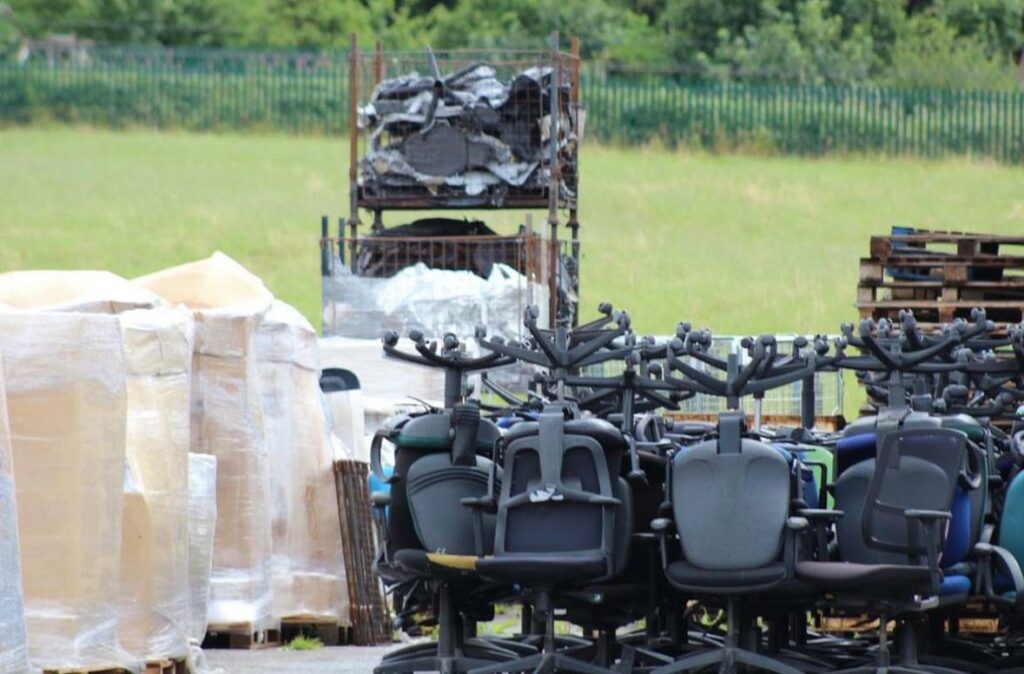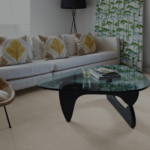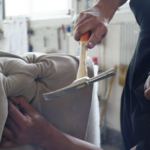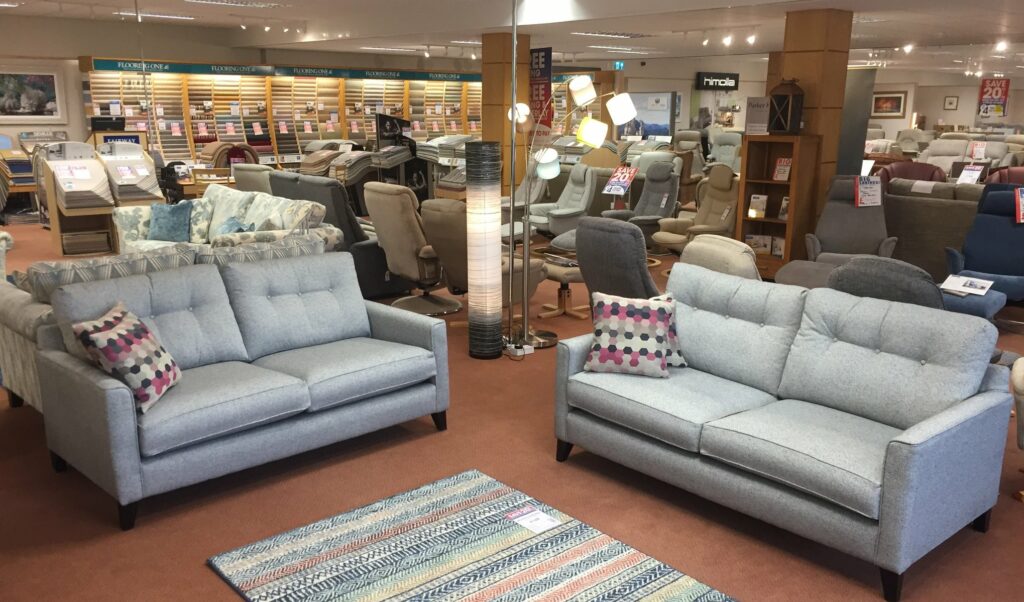Joanna Knight MCIPR, owner of The Knight Partnership and furnishing industry sustainability expert, talks about the importance of reuse and circularity with a look at best practice when it comes to waste prevention.
This summer has, once again, highlighted the impact of climate change. Rapid reductions in greenhouse gas emissions are essential yet the relationship between waste and the race to net zero is not widely recognised.
Published in July 2023, Defra (Department for Environment Food and Rural Affairs) has circulated the latest cross-departmental plan to maximise resources and minimise waste in England. The publication acknowledges that reuse and recycling are essential contributors if we are to achieve the net zero goal. “Research by the Waste and Resources Action Programme and the University of Leeds (2022) found a potential reduction to territorial greenhouse gas emissions relating to Furniture of 4 MtCO2e between 2021 and 2050, based on the introduction of resource efficiency policies.”
We all know the saying ‘waste not, want not’ yet we continue to extract vast quantities of virgin raw materials. According to the Circular Economy’s 2023 Circular Gap Report, the global economy is only 7.2% circular, in other words the volume of materials that are cycled back after the end of their useful life. This figure continues to reduce as virgin material usage increases.
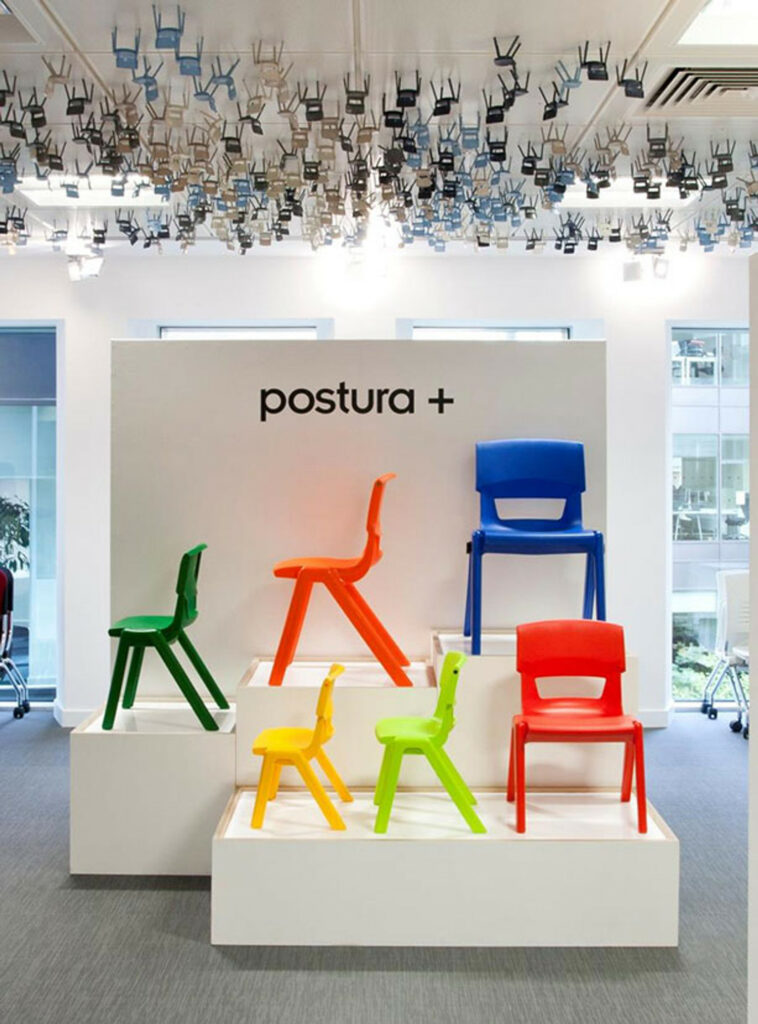
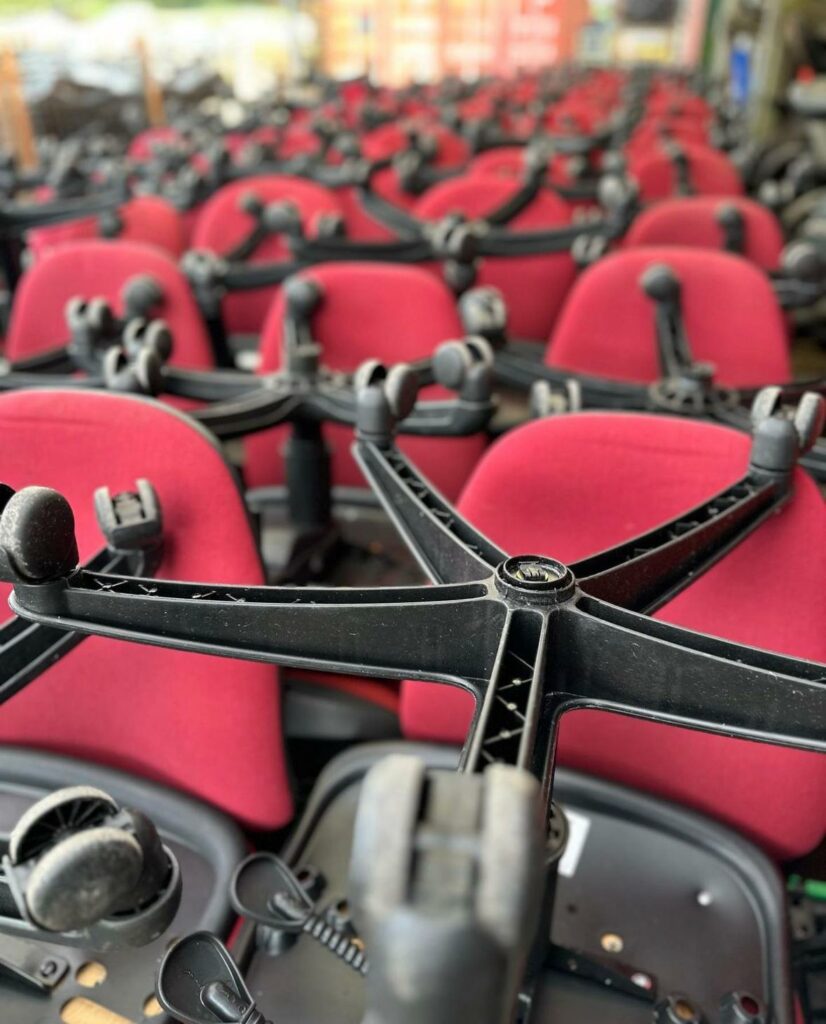
The public is starting to ‘buy in’ to reuse, particularly through the ‘vintage’ trend. Organisations, such as the British Heart Foundation, have demonstrated a viable model for domestic furnishings with retail shops on many high streets. eBay has also launched a ‘Better than New’ Homewares Hub. Most buyers for a home will, of course, only require one or two items which do not necessarily need to match. When furnishing a commercial building, the required number of items of a similar style and type is far higher.
The commercial interiors sector has traditionally practised an ‘out with the old, in with the new’ approach. Many companies proudly boast their commitments to reducing carbon impact, but few consider the negative effects from the potential release of embodied carbon when planning their new office, restaurant or hotel.
Considering an office task chair will have a carbon footprint of around 70kgCO2eq. and a six person bench desk over 200kg, the impact is evident. More ‘environmentally sensitive’ new products will have a lower figure but what about the existing assets if they are simply discarded?
The barriers to greater circularity are significant. Technical issues through lack of transparency of material content, original manufacturer, and warranties; reverse logistics and warehousing costs; skill shortages in repair and renovation; procurement processes favouring new products; and consumer perception on what is in style and on trend, are all factors.
Whilst many manufacturers remain sceptical, there is a growing acceptance that change is necessary. Many new products incorporate recycled content although rarely the company’s own waste or reused components. New designs are being introduced that can be readily refurbished in the future. Some brands are also overcoming the significant barriers to circular manufacturing by appointing ‘official’ remanufacturing partners with access to components and extended warranties.
Refreshed, refurbished, remanufactured and fully circular products should be welcomed. Finite virgin materials must be valued, retained in use for as long as possible before considering recycling – let alone disposal. We cannot wait for legislation, we need to embrace this change now!
www.theknightpartnership.co.uk

Meet Joanna
Joanna Knight has over 30 years in the office & contract furniture sector. She is now a marketing consultant focussed on sustainability; Council member at FIRA and FISP; and Co-Founder of the Sustainable Design Collective, a think tank of designers and specifiers. Her roles include:
- Co-Founder, The Sustainable Design Collective
- Sustainability and Circular Economy Manager – Women in Office Design (WOD)
- Non Executive Director – FIRA
- Advisory Committee – FISP
- Court Assistant and Liveryman – The Furniture Makers’ Company
- Chair – Climate Change and Sustainability Committee
- Sustainability Ambassador – Design Insider


